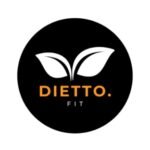Celiac Disease
Our Solutions
- Sports Nutrition
- Renal Nutrition
- Oncology Nutrition
- Corporate Nutrition
- Cardiovascular Disease Diet
- Therapeutic nutrition
- Naturopathy
- Gerontology and geriatric
- Pediatric nutrition
- Gastrointestinal (GI) disease nutrition
- Liver and pancreas
- Pancreas Health and Nutrition
- Obesity and underweight nutrition
- Infections and fevers nutrition
- Anaemia nutrition
- Pre and post pregnancy nutrition
Health Conditons

Celiac Disease
Celiac disease is an autoimmune disorder characterized by an adverse reaction to gluten, a protein found in wheat, barley, and rye. When individuals with celiac disease consume gluten, it triggers an immune response that damages the lining of the small intestine. This damage impairs the absorption of nutrients from food, leading to a range of symptoms and potential long-term complications.
Symptoms of celiac disease can vary widely and may include:
Digestive issues such as diarrhoea, constipation, bloating, gas, and abdominal pain
Fatigue and weakness
Weight loss
Anaemia due to iron deficiency
Bone or joint pain
Dermatitis herpetiformis, a skin rash characterized by itchy, blistering lesions
Depression or anxiety
Missed menstrual periods or infertility
Diagnosis of celiac disease
A combination of blood tests to measure antibodies against gluten.
A biopsy of the small intestine to assess damage to the intestinal lining.
The primary treatment for celiac disease
Strict adherence to a gluten-free diet.
Eliminating all sources of gluten from the diet, including wheat, barley, rye, and their derivatives.
carefully read food labels and avoid products containing gluten.
Many gluten-free alternatives available to lead healthy, fulfilling lives.
Work closely with healthcare providers, including gastroenterologists and registered dietitians.
Thanks for the great service. I didn’t even need training. I love fitness. Fitness impressed me on multiple levels.
– William Blake
Our Services Benefits

Schedule Exercise
- Personalized guidelines based on your biological needs and unique circumstances.
- Simple, practical tips and advice to help you achieve your nutritional needs.
- Advice on ways to deal with weight loss, fatigue, and nausea brought on by illness or treatment side effects.
- Plans for families or caregivers in support of your nutritional needs.
- Recipes, lists of foods, dietary supplements, and vitamins.

- clear-fluid diets
- full- fluid diets
- soft diets
- regular normal diets
- oral supplements
- tube feeding
- high fibre diet
- Alkaline-ash diet
- Sodium restricted diets
- Moderate to low fat diet
- High carbohydrate diet
- High caloric fluid and soft diet
